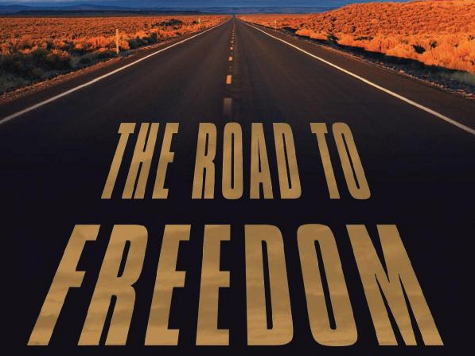
American Enterprise Institute President Arthur Brooks makes the argument that if conservatives do not argue for the free enterprise system in moral terms, they might as well try to convince liberals, who think it is an immoral system, to eat a dog.
And if the liberal is not named Barack Obama (Brooks wrote the book before it became widely known that Obama ate dog meat in his youth), this would be impossible.
And this is why conservatives must change the terms of the argument to win the battle for free enterprise that rewards merit over statism, which promotes learned helplessness.
In a passage in his new book, The Road To Freedom, Brooks writes about a story adapted from the works of University of Virginia social psychologist Jonathan Haidt to illustrate the challenge some advocates of free enterprise unwittingly face when arguing with liberals who see the free enterprise system as immoral.
Brooks gives a hypothetical example of a family, after thinking about what to do with their dead dog, that ultimately decides to cook the dog and eat it.
Most everyone’s initial reaction would be that this is “just wrong,” Brooks writes.
If asked if eating the dog is morally okay, everyone will say, “of course not.”
But why? Nobody is physically harmed, and it is not illegal.
Brooks cites Haidt’s studies in the science of morality in which Haidt finds that “when people are confronted with an emotionally evocative situation like the one in the story about the dog,” their minds search for rational justifications for their moral judgments.
In this case, Brooks writes, the rational justification is that it is just wrong to eat your pets.
“You are unlikely to persuade people based on logic and reason that their initial moral judgement was wrong,” Brooks writes, noting that public policy debates are very similar.
According to Brooks, “people have very quick moral reactions and respond strongly to moral appeal,” and “once they are leaning morally in one direction, it’s extremely difficult to push them the other way using logic and evidence.”
This is what free market advocates are up against when they counter liberal arguments about the immorality of free enterprise with powerpoint charts “about economic efficiency in the capitalist economy.”
But, according to Brooks, the moment your interlocutor says, “Capitalism is unfair to the poor,” you’ve lost the debate.
“You might as well try to convince somebody to eat his dog,” Brooks writes.
And this is why Brooks’ book is such an important contribution to the political debate and discourse.
It has the theory, data, and substance one would expect from a former professor and president of an influential think tank. The Road To Freedom is infused with a bit of Adam Smith’s The Theory of Moral Sentiments, Hayek’s The Road To Serfdom, and even a bit of Newt Gingrich’s Contract With America in its clear policy prescriptions.
But the book’s most important contribution will be teaching conservatives how to more effectively argue for the free market system and not be caught in situations in which their arguments are as convincing as those used to persuade someone to try dog meat.

COMMENTS
Please let us know if you're having issues with commenting.